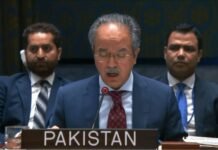Malabo, 6 June 2022 (TDI): Equatorial Guinea celebrated President Day on Sunday. President Day in Equatorial Guinea takes place on 5 June every year. It’s a public holiday to celebrate the birthday of President Teodoro Obiang Nguema Mbasogo. President Obiang was born on June 5th, 1942. He has been the President of Equatorial Guinea since 1979.
Teodoro Obiang Nguema Mbasogo is the current president of the country. He is the longest-serving leader in Africa and the longest-serving president in the world. Such a long career experience happened because there is no maximum term for the president in the country.
President Day in Equatorial Guinea and President Obiang
President Obiang started his career as a President in 1979 after he ousted Francisco Macias Nguema, the former dictator of Equatorial Guinea, who was his uncle. As someone born into a political family, President Obiang once went to Spain to receive military education. Afterward, he became a leader in the Armed Forces in Equatorial Guinea.
President Obiang’s personal experience has a close link with national history. Equatorial Guinea was a colony of Spain formerly with the name Spanish Guinea. Finally, the country achieved its independence on October 12, 1968. For today’s Equatorial Guinea, the form of the national government contains two legislative houses: the Chamber of Deputies and the Senate.

Equatorial Guinea’s Current Situation under COVID-19
With the effort taken by the government, Equatorial Guinea has developed step by step these years. However, the outbreak of the pandemic deeply affected the country’s economic situation. Data from the African Development Bank (AfDB) shows that the real GDP of the country fell by 6.1% in 2020 according to the epidemic. However, even ignoring the pandemic, this is the eighth consecutive year of economic recession in the country due to growth problems in the oil (-7.2%) and non-oil sectors (-4.7%).
Moreover, on the demand side, investment contracted by 35% by the end of 2020. Furthermore, Equatorial Guinea’s external debt stood at around 11.1% of GDP in 2019. Since the onset of the commodity crisis, domestic arrears have accumulated, causing the ratio of public debt to GDP to rise from 12.6% to 41.1% in 2019
Equatorial Guinea’s economy remains at risk of recession in the coming years. Also, the vulnerability of the country’s economy is likely to persist. According to AfDB’s 2021 African Economic Outlook (AEO), Equatorial Guinea’s economy is expected to grow by 2.6% in 2021. Unfortunately, the country is expected to return to recession in 2022, with a real GDP decline of 4.4%. Therefore, the current national government is facing a serious financial burden which will need more innovative and sustainable strategies to get rid of the constant recession in the economy.
Chensi is majored in diplomacy. Her main research interests include Sino-African relations, African foreign affairs, public diplomacy and sustainable development.








